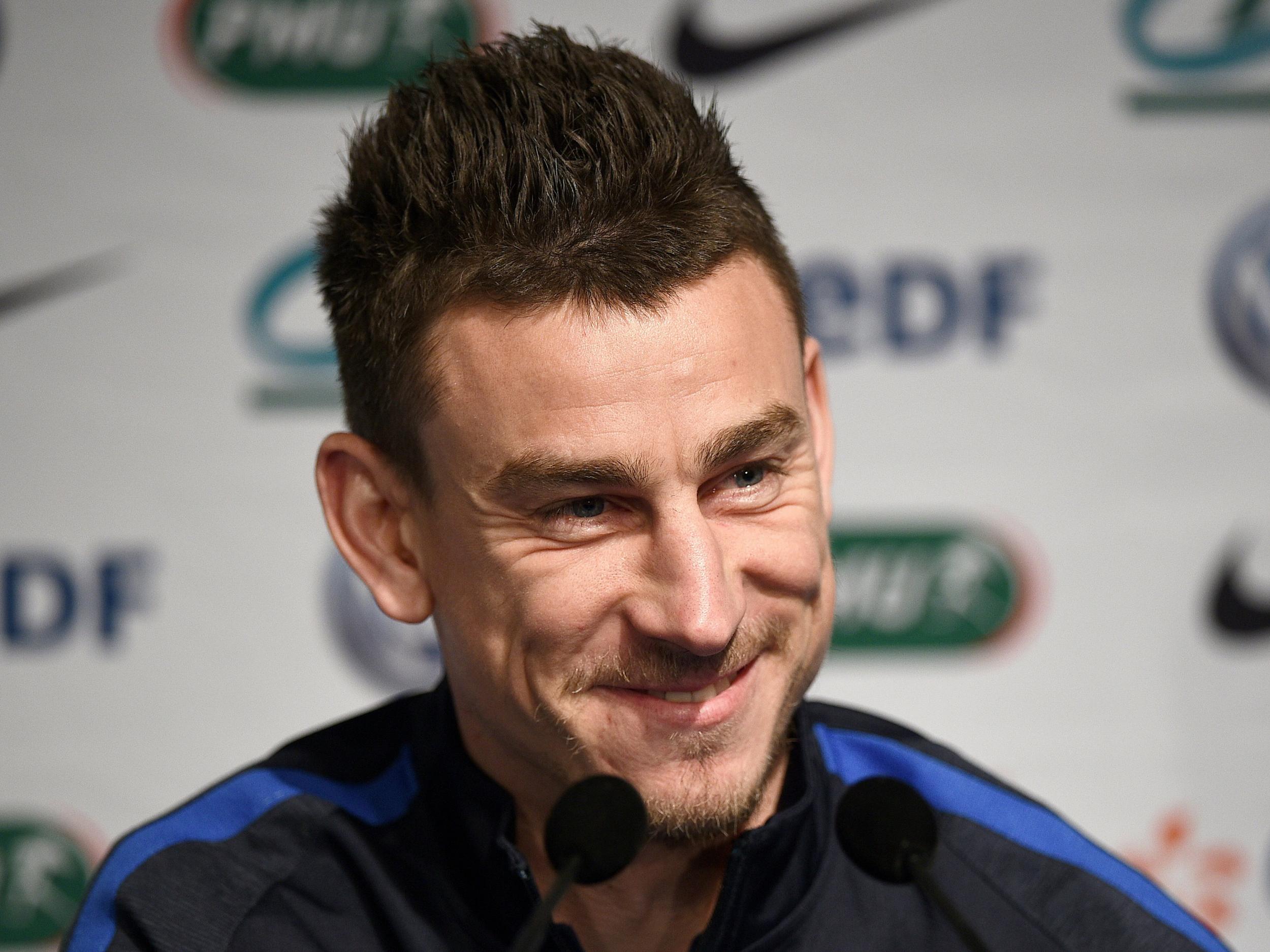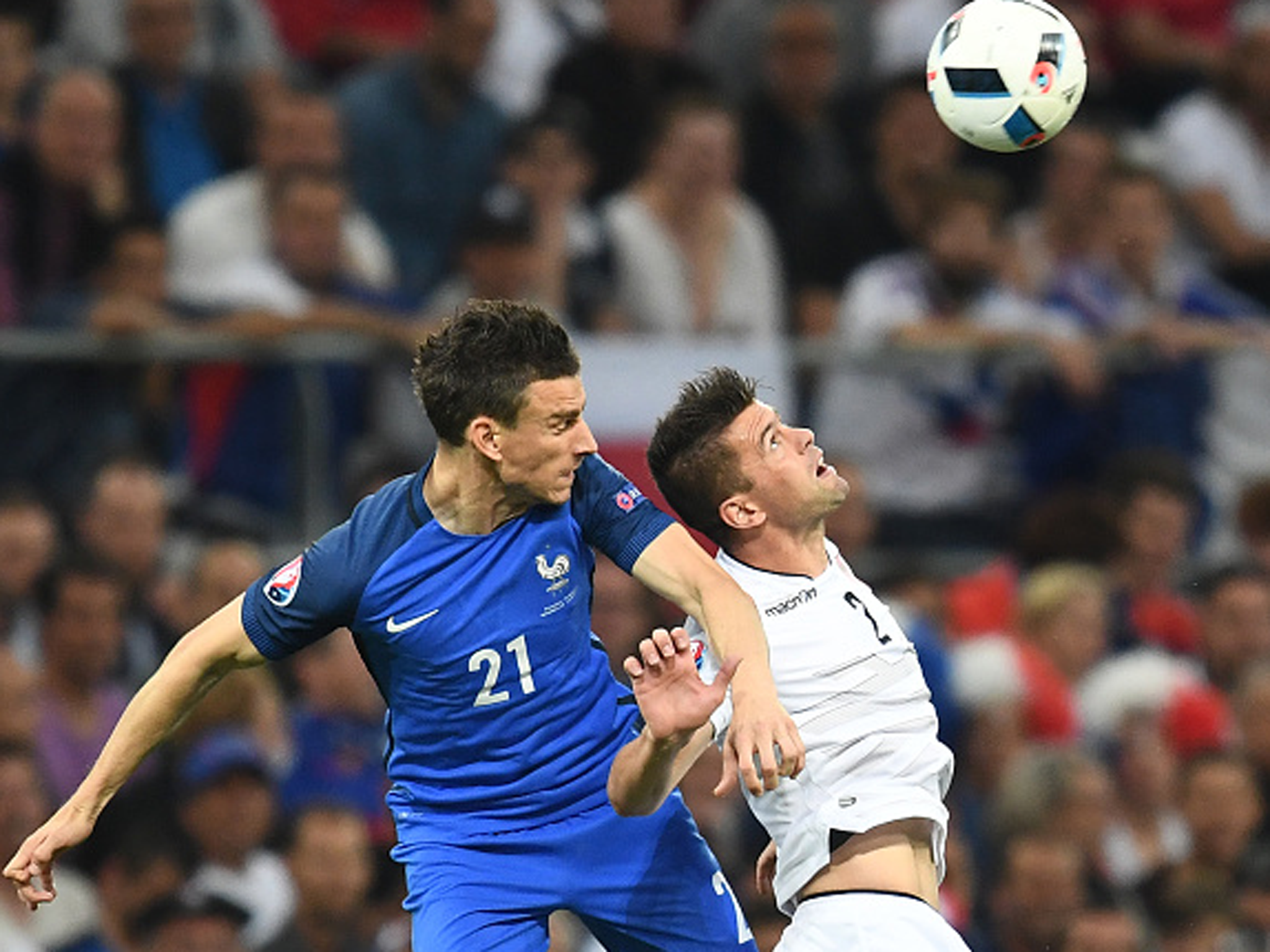France vs Iceland: Late bloomer Laurent Koscielny blossoming at the right time for Les Bleus
The Arsenal centre-back has come a long way since playing his first top-flight game at the age of 23

Your support helps us to tell the story
From reproductive rights to climate change to Big Tech, The Independent is on the ground when the story is developing. Whether it's investigating the financials of Elon Musk's pro-Trump PAC or producing our latest documentary, 'The A Word', which shines a light on the American women fighting for reproductive rights, we know how important it is to parse out the facts from the messaging.
At such a critical moment in US history, we need reporters on the ground. Your donation allows us to keep sending journalists to speak to both sides of the story.
The Independent is trusted by Americans across the entire political spectrum. And unlike many other quality news outlets, we choose not to lock Americans out of our reporting and analysis with paywalls. We believe quality journalism should be available to everyone, paid for by those who can afford it.
Your support makes all the difference.They have made accordions at the Maugein factory in Tulle since 1919, but just over two years ago the company went into receivership. A century of expertise and heritage were coming to an end, as well as almost 20 jobs.
The owners needed a saviour. They could have gone to President Francois Hollande, former mayor of Tulle, but instead they went to their most famous son, making what a company official described as “appeal to his sense of local pride”.
Laurent Koscielny is a proud Correzien and was quickly persuaded, and led a group of local investors who put €600,000 in, saving the factory and most of the jobs. Koscielny is now seen as a local saviour, but he never wanted the news to become public. “Ca c’est Laurent”, as one friend puts it.
But then Koscielny is a man whose profile has still not quite caught up to his status. He has been the best centre-back in England for the last few years, with Vincent Kompany diminished by injuries. He will be playing a European Championship quarter-final tomorrow and has been one of the best defenders at this tournament too. He is two wins away from the biggest night of his life, in Paris next Sunday.
When he returns to Arsenal next month he is favourite to be captain. And yet despite all this he remains barely known, private, discrete. He rarely gives interviews. His social media profile does not extend much further than retweeting photographs of his team-mates with captions like “CE SOIR” or “YES”. In the age of the wholly exposed celebrity footballer, his decision to guard some privacy is counter-cultural.
Koscielny is different. He was not picked out young as a future star, did not attend one of France’s prestigious centres de formation, was never told in his youth that he was heading for the top. He did not play a top flight game until 23, did not make his European or international debut until 25. Having been fortunate enough to grow up out of the limelight, he has little enthusiasm to step into it now. He would rather just get home to his young family.
This is the result of following a very different path from many of his France team-mates. French football still produces talented teenagers but many of them leave France before ever playing senior football here. So it was for Antoine Griezmann and Paul Pogba, who never played a Ligue 1 match and have no intention of doing so any time soon. Kingsley Coman played three times for Paris Saint Germain before heading for Juventus.

If Ligue 1 looked parochial to some of these talented youngsters, it might have looked unreachable to a teenage Koscielny. He spent the first few years of his career in the French lower leagues, first at Guingamp, then at Tours, a very long way away from the Premier League, the Champions League or Euro 2016.
It certainly must have felt that way for Koscielny as a skinny teenage boy, as interested in computers as in football, growing up in Tulle in central France. He was not picked up by any major academy but played for the local non-league club Limoges. He thought about becoming a coach or a PE teacher, but spent too much time playing football and could not complete his Baccalaureate.
Limoges were a small club going through a difficult time but they still entered teams into the Coupe Gambardella, France’s knock-out competition for under-19 teams. In 2003 they had a good run and reached the quarter-finals where they were beaten 3-1 by a powerful Lyon side. But the 17-year-old in defence for Limoges caught the eye of the watching scouts. Yvon Schmitt, there working for Guingamp, later recalled how he was “immediately seduced” by the teenage Koscielny, with his intuitive reading of the game and his assertive interceptions.
Schmitt spoke to Koscielny’s parents Bernard and Viviane hoping to get their son to sign. But Lens wanted him too, showing the family around their brand-new La Gaillette academy, the place that produced Adel Taarabt and Raphael Varane. Koscielny felt more comfortable at Guingamp, who were then fighting to stay in Ligue 1, and signed for them.
It was only after Guingamp had been relegated that Koscielny made his senior debut for them in November 2004. This was the French second tier, not an easy place for a young defender to learn the game, and he found it tough. There were other bigger more experienced centre-backs and so Koscielny found himself playing at right-back, not a role he especially enjoyed.
I wanted to be happy and to play my natural game
After four years at Guingamp the 21-year-old Koscielny decided that he had had enough. Even for a player with so little experience, he had a fully formed sense of how he wanted to play: as a centre-back for a proactive team, making the most of his reading of play. So he joined third-tier team Tours, managed by Daniel Sánchez, who wanted to build his team around him.
“I wanted to be happy,” Koscielny later explained, “and to play my natural game.” Sánchez liked Koscielny and tried to iron the rashness out of his play, telling him over and over again that ‘a defender on the ground can’t do any defending.’ Koscielny inspired Tours to promotion, and in his second season he was back in Ligue 2, not as an occasional right-back but as the best centre-back in the division.
Christophe Le Roux had played with Koscielny at Guingamp a few years before but by 2008 he was working for Lorient, another Breton side, as director of football. He knew Koscielny was talented and was delighted to see him finding his voice at Tours, even in front of 7,000 fans each week.
“At Lorient we have traditionally been very attentive to the Ligue 2 market,” Le Roux remembers. “I knew Laurent very well, as a player and as a man. I just had to convince the manager and the club that we had to buy him, that his potential interested us.” That was easy enough to do that when, in January 2009, Lorient drew Tours in the Coupe de France. “He confirmed everything that I had said about him,” Le Roux says, “he was a true defender.”
Lorient were convinced and their offer of €1.5million was more than enough to persuade Tours to sell. Koscielny had a choice, with offers on the table that summer from Sochaux and Nantes. But he had flourished since deciding to move to Tours for footballistique reasons and was determined to follow the same path this time. Lorient played attractive football under manager Christian Gourcuff, so Koscielny chose them.
Compared to the young player I saw at Guingamp he was a different man...
Adaptation was easy, and Koscielny fitted into a side that played attractive football high up the pitch. “Compared to the young player I saw at Guingamp he was a different man,” Le Roux says. “He had much more certainty in his life and in his game. He had a huge maturity to his game and never went to ground.” Koscielny excelled on debut, an away win at Lille, and scored an added-time equaliser in his second game, Montpellier at home. By the end of the season Lorient had finished seventh, the best in their history, as well as reaching the semi-finals of the Coupe de France.
There are few secrets in Ligue 1 and scouts soon knew about the player Lorient had on their hands. Gilles Grimandi, Arsenal’s man in France, was a regular at the Stade Moustoir and saw a player who could adjust to the pace of English football. Wenger had himself been tipped off by old friend Daniel Sanchez, and with the data showing how many of his individual duels Koscielny won, Wenger was convinced.
Arsenal had been looking for new young aggressive centre-backs, having signed Thomas Vermaelen from Ajax the previous summer. So he in June 2010 he called Lorient, a club he knew well through his friendship with Christian Gourcuff. They eventually accepted £10m. Koscielny could have gone anywhere he wanted in France that summer, with Marseille, Lyon and Paris Saint Germain all keen, but decided to come to England.
In one sense it was a giant leap to go from a mid-table French side to a team who had just finished third in the Premier League, who still had Robin van Persie and Cesc Fabregas in the side. Especially given how recently Koscielny had been playing second and third tier football in France.
But in another sense it was perfectly natural. Lorient and Arsenal are clubs built on similar football philosophies, which is why Wenger was so keen to loan them Francis Coquelin, Joel Campbell and Gilles Sunu. Koscielny has always wanted to play for possession teams, for ambitious managers, defending on the front foot rather than sitting deep and digging in. That is why he chose to play under Sánchez and Gourcuff and why he chose to leave France to play for Arsene Wenger. “He made wise choices at the right moments,” says Le Roux.
Koscielny needed some time to attune his assertive style to the English tempo. He was sent off twice in his first seven Premier League games. But even by the end of his first season he was clearly the best defender at the club, and since then has only got better. Wenger sees him as his best value buy for the last 10 years.
The player himself is delighted to play for a team and manager in tune with how he sees the game. “I take more pleasure to play in a team which has the ball, rather than playing deep,” he told L’Equipe last month. “I prefer to win the ball as high up and and as quickly as possible.”
That is how Koscielny defends, and there are few better than him in Europe at playing this way. He has not won as many plaudits or as many titles as he might have that, but all that could change this week.
Join our commenting forum
Join thought-provoking conversations, follow other Independent readers and see their replies
Comments